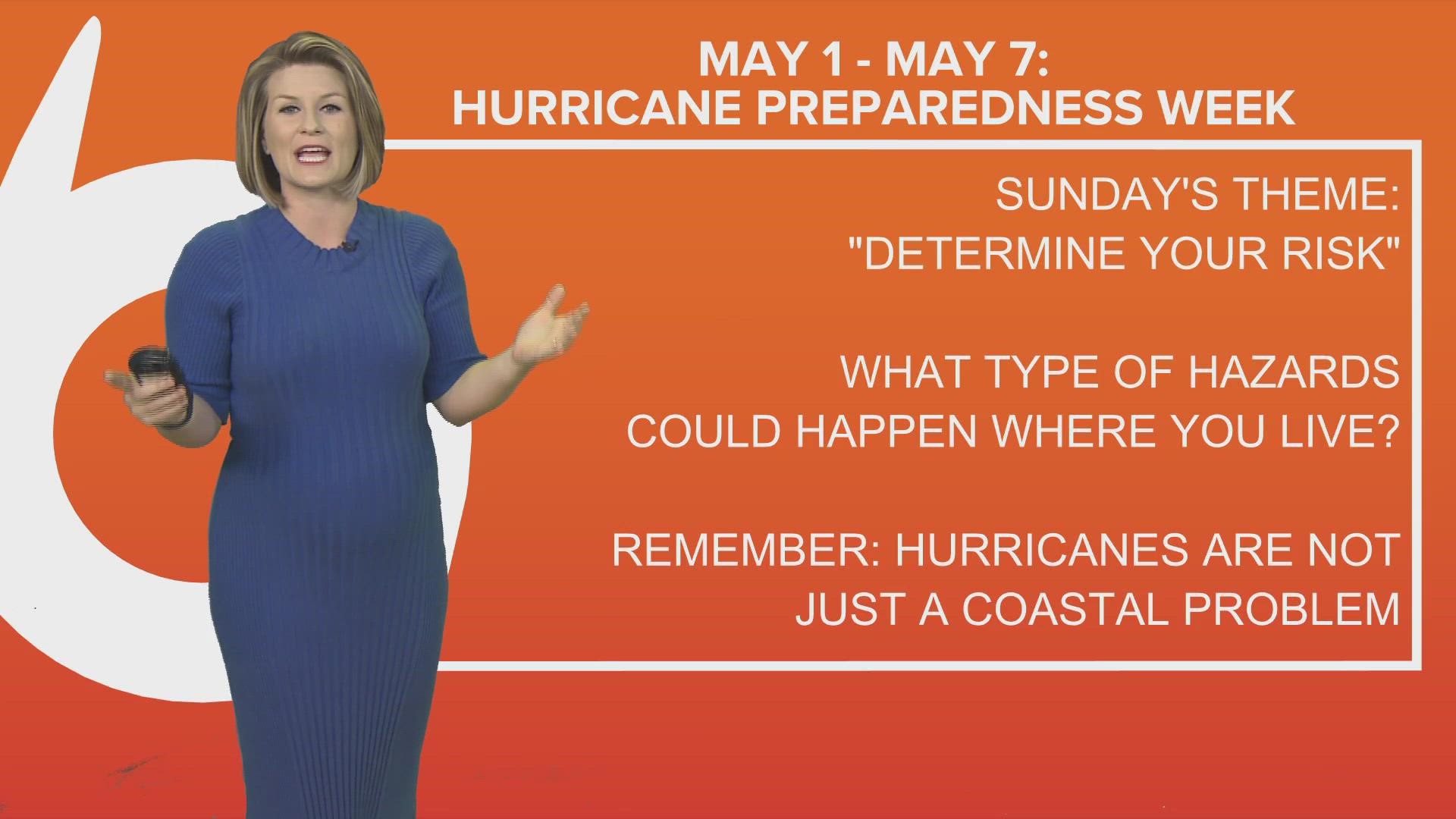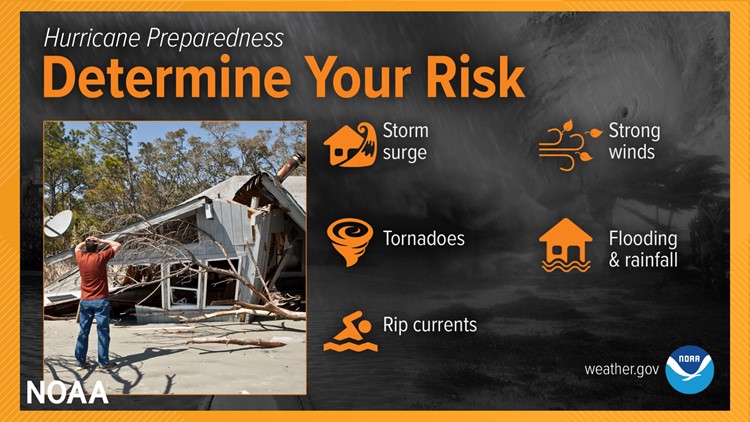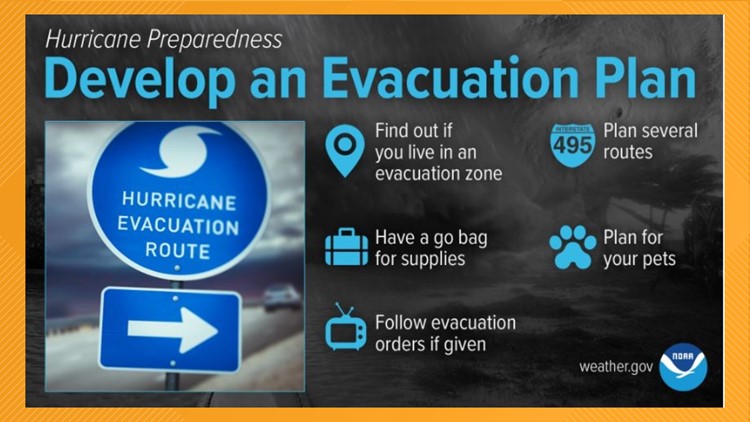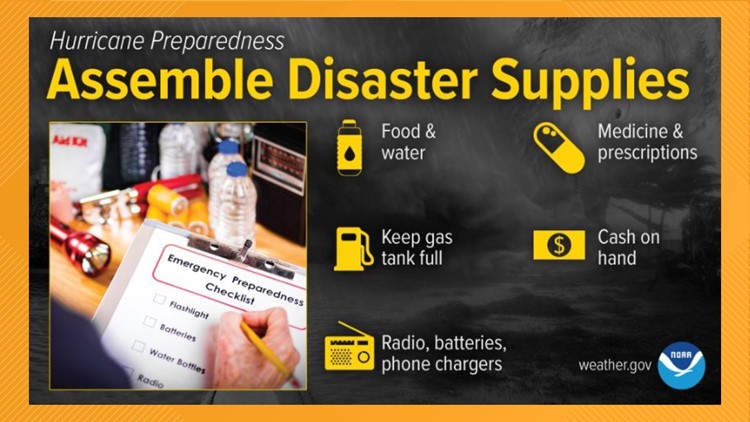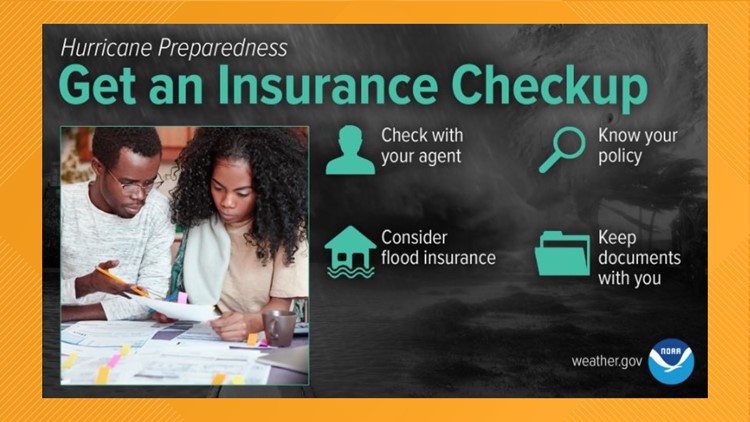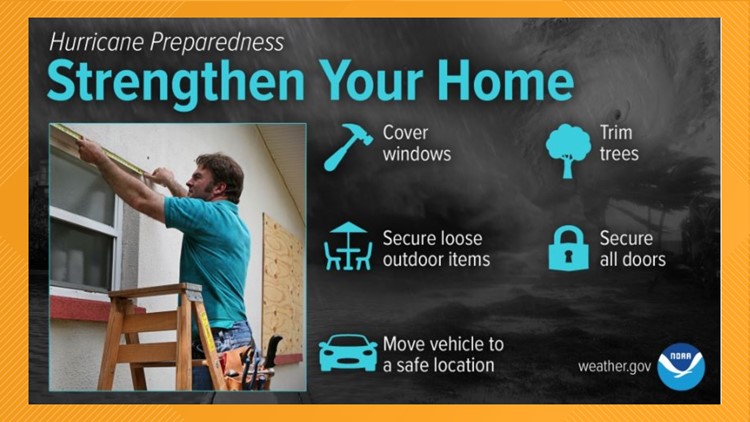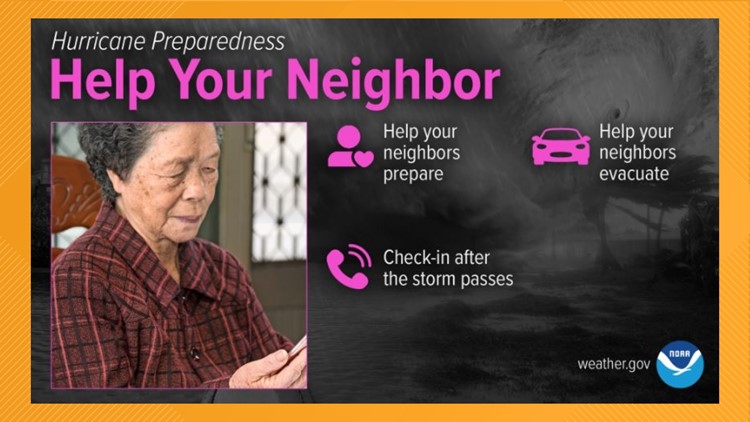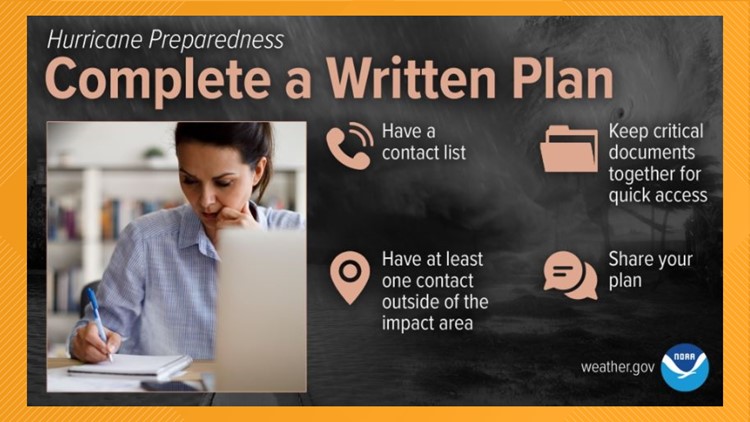JACKSONVILLE, Fla. — "It's never too early to prepare."
You've heard this many times before leading up to hurricane season, but the statement couldn't be more true. What can we all do now to take even a little of the stress and worry out as a storm is threatening?
Jacksonville, and the First Coast in general, is known as a hurricane-prone area and it's encouraged folks complete preparations before hurricane season begins on June 1.
Follow these steps to make sure you and your family are ready.
What type of wind and water hazards could happen where you live? Start preparing how to handle them. Keep in mind that hurricane are not just a coastal issue. Impacts from wind and water can stretch hundreds of miles inland and it doesn't have to be the biggest storm or a strong hurricane to produce significant impacts. If you live in an area prone to flooding, know if it's safe to remain in your home during or after a storm.
Do you live in a hurricane evacuation zone? If you don't know the answer to this, it's best you find out as soon as possible and memorize which zone you live in. You may need to leave if you live in a flood prone area or mobile home outside of an evacuation zone. Now is the time to begin planning where you would go and how you would get there.
Know that you do not need to travel hundreds of miles to outrun a storm. Your destination could simply be a friend or relative who lives in a well built home outside of a flood prone area. However, your safest place may to just stay put! It's oftentimes best to stay off the roads and allow others to evacuate safely. Be sure to account for your pets in your plan.
You're going to need supplies not just to get through the storm, but for the potentially lengthy and possibly unpleasant aftermath of a storm. This goes for folks evacuating or sheltering in place. What would you need if you were to lose power? Think of it as backwoods camping without the daily comforts we take for granted. Have enough non-perishable food, water, and medicine to last each person in your family a minimum of three days. The more water the better. You'll need extra cash, a battery-powered radio, and flashlights. You may even want a portable crank or solar-powered charger for your cell phones.
This is such a simple step and one that's often overlooked! Call you insurance company or agent and ask for an insurance check-up to make sure you have enough insurance to repair or even replace your home and/or belongings. Remember, home and renters insurance doesn't cover flood insurance. If you are considering flood insurance, you'll need a separate policy for it. Flood insurance is available through your company, agent, or the National Flood Insurance Program. Act now though because flood insurance requires a 30-day waiting period before it goes into effect.
Make sure your home is in good repair and up to local hurricane building code specifications to withstand wind impacts. Many retrofits are not as costly or time consuming as you may think. Have the proper plywood, steel, or aluminum panels to board up the windows and doors if necessary. Did you know the garage door is the most vulnerable part of the home? Make sure it will be able to withstand the wind as well as any other part of your home. If you are renting, make sure to check in with your landlord before and after a storm.
This tip is to be a good human! We are all in this together. Many people rely on their neighbors before and after a disaster, and there are many ways you can help them. Exchange numbers, offer to grocery shop for the elderly or families with newborns, or help them evacuate. Make sure to check in after a storm passes.
Now that you have taken the steps to prepare and are not currently under the pressure of a looming storm, spend a few extra minutes to jot down your family's hurricane plan. Know who issues evacuation orders for your area, determine locations on where you will ride out the storm, and start to get your supplies together now. Thanks to smartphone, you can write up your plan in a note and share it with family or friends for easy access. Being prepared before a hurricane threatens makes you resilient to the impacts of wind and water. It could mean the difference between being a hurricane victim or a hurricane survivor.

